
Protests intensify in France after the Macron government forces pension reform through
In France, protests intensified after the pension reform, that would raise the retirement age to 64 from current 62, was forced through without the vote of the National Assembly, the one of the two chambers the parliament, and despite the broad opposition of the people: at least 70% of the people are against the reform, and according to the union CFE-CGC, 94% of workers are opposed to it. In the evening of March 16th, protesters took the streets in the capital Paris and in multiple other cities. Masses clashed with riot police on the Place de la Concorde, a central square in Paris and lit a fire in the middle of it. In Paris, Marseille, Lyon, Toulouse, Nantes and Rennes the masses have been fighting the police, who are hit again and again with petrol bombs and fireworks. Hundreds of thousands, possibly millions, are taking part in protests. At least 310 have been arrested.
The protests are becoming more combative each moment. The masses organize spontaneous gatherings and go beyond the agenda of the unions. In Besancon, hundreds burned voter cards as a rejection of bourgeois democracy. Fires have been started in many places, and strike-breaking temp-work agencies have been attacked. The strikes continue, affecting energy production, transportation and sanitation as well as the public sector among others. Especially the strike of garbage collectors and street cleaners is worrying the bourgeoisie. The minister of interior Darmanin has even said that the police will force “some of them” back to work.
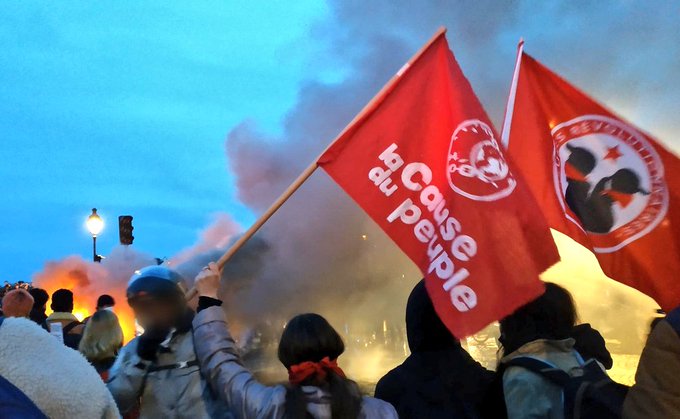
The struggle has united broad masses, bringing together millions of workers, students and other layers of the people, who have been protesting for the past two months, with multiple demonstrations and strikes in many branches. Proletarian revolutionaries have been engaging in determined protests in direct confrontation with the police, carrying out agitation and propaganda and mobilizing broad masses, including the youth, to the protests. The youth has also actively been participating in blockades at high schools. We include here some pictures of actions of the past weeks.
Jeunes Révolutionnaires (Young Revolutionaries) shared pictures on Twitter of the protests in Rennes, Limoges and Paris on the 17th of March, and other actions.
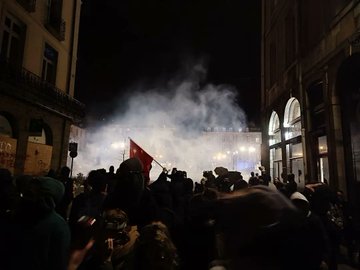
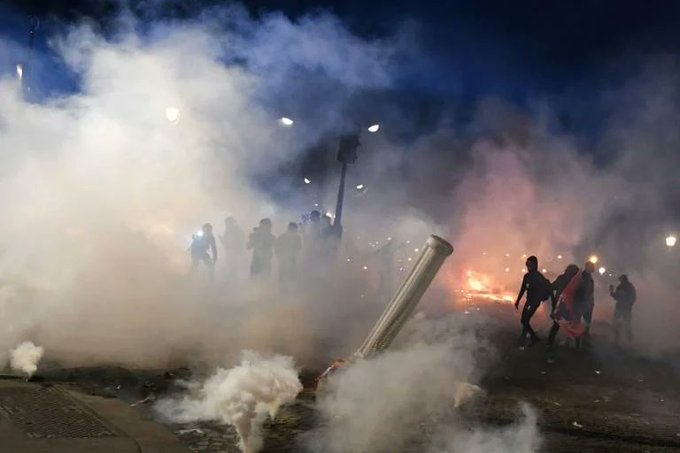
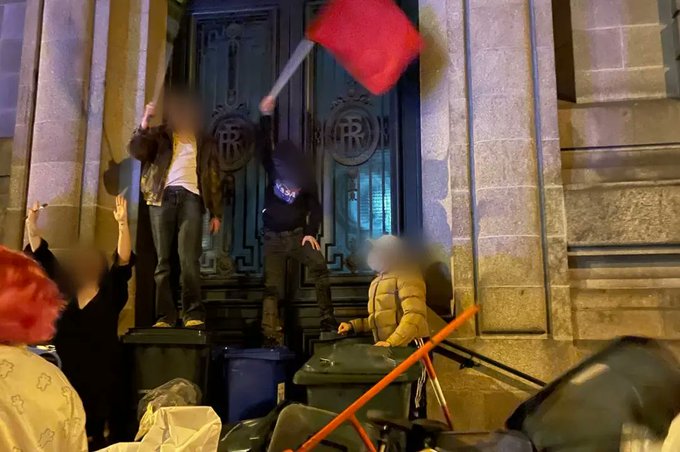
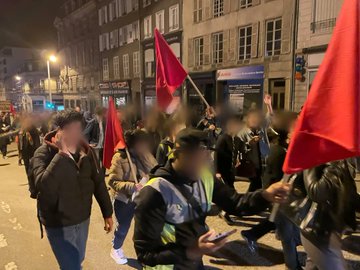
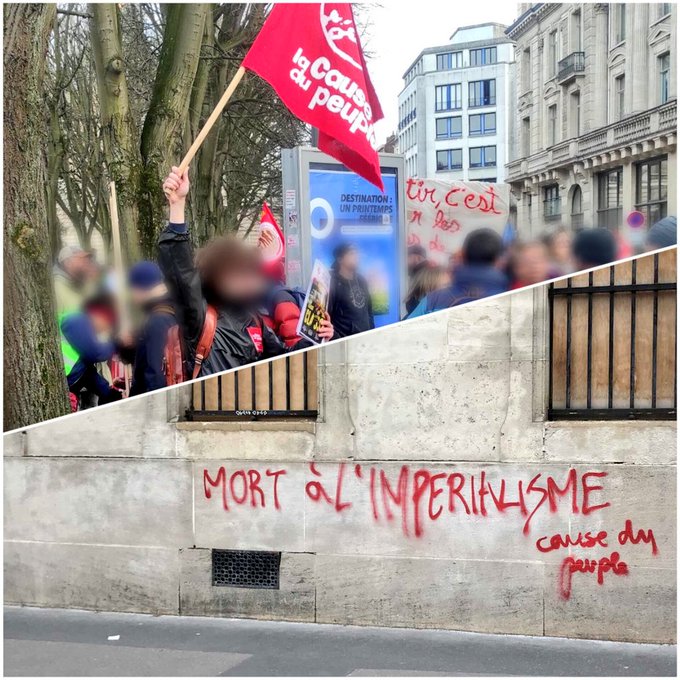

Ligue de la Jeunesse Révolutionnaire (League of Revolutionary Youth) participated in a yearly protest against racism, with the demonstration also being against the pension reform this year:
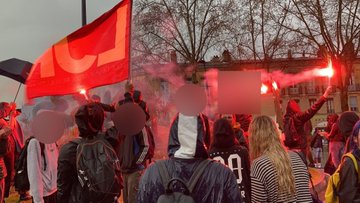

Dazibaos have been spread in Grenoble:
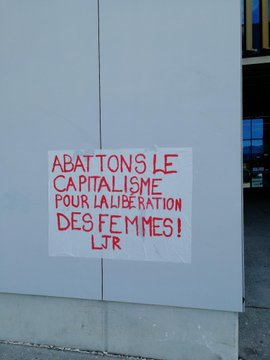

On the 7th of March, up to three million people were on the streets, in support of a general strike.
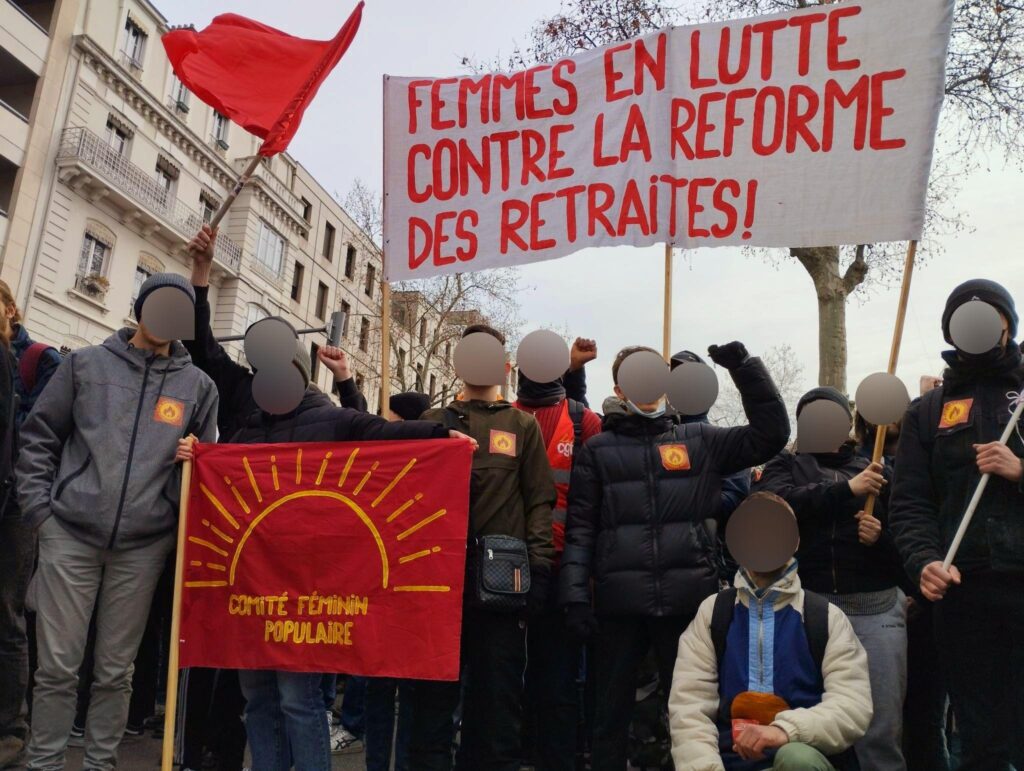
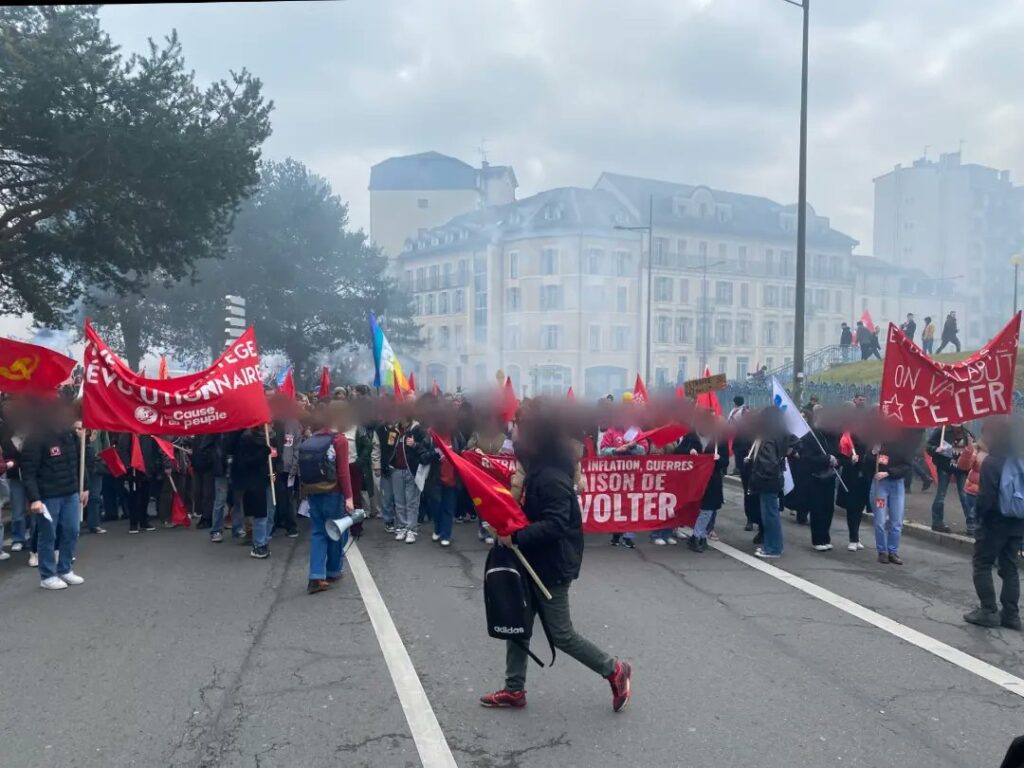
Throughout the protests, the revolutionary youth has been struggling side by side with the workers.


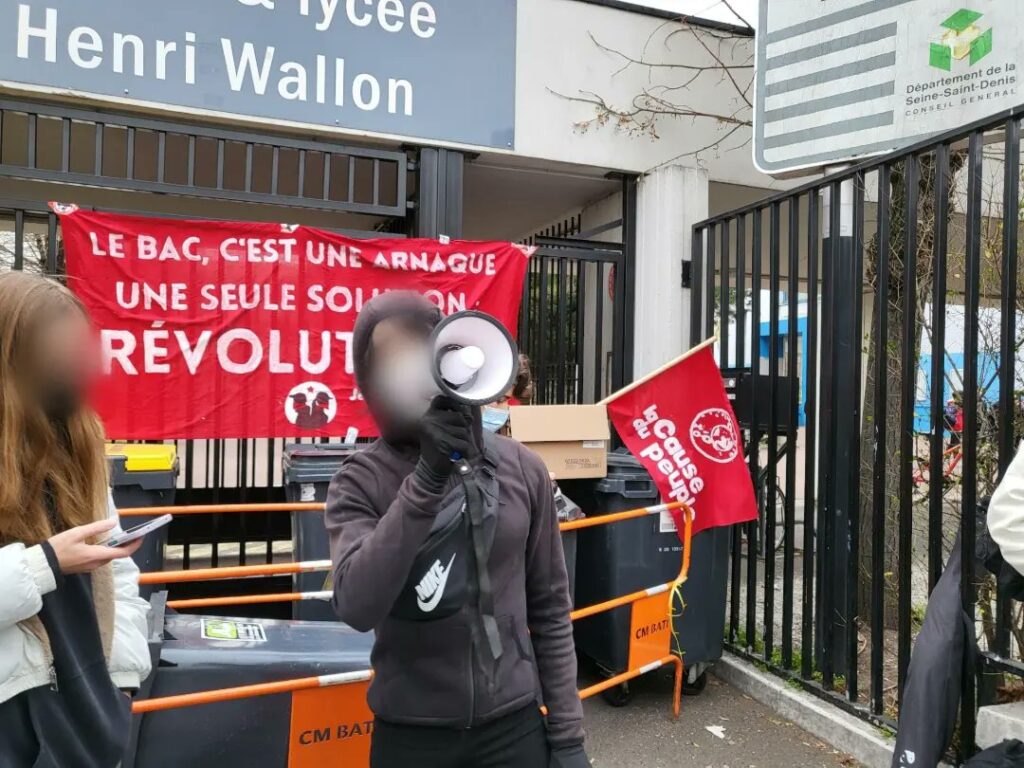
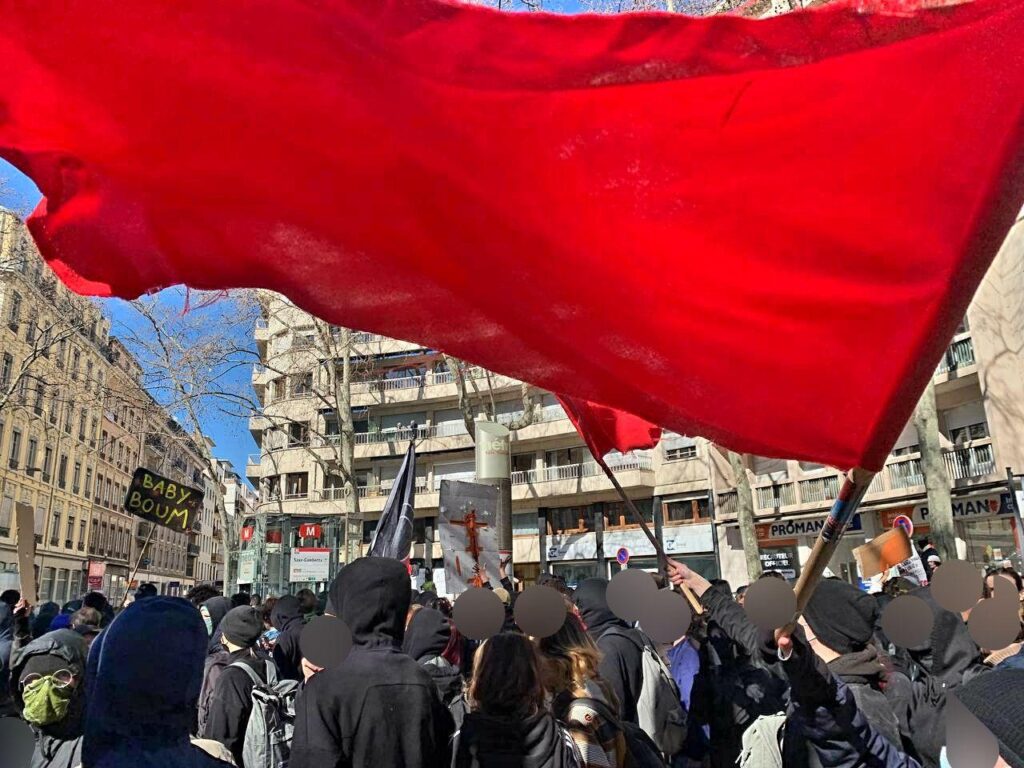
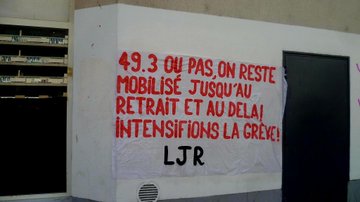

The proletarian, anti-imperialist and revolutionary newspaper La Cause du Peuple wrote in February that this pension reform is nothing new but just another anti-people measure taken by the bourgeoisie. In recent years there has been many new measures that have attacked the basic rights of the people: ”security laws” advancing the state becoming more reactionary, and unemployment and housing laws attacking the unemployed and the poorest. This is an accelerating trend – in the last 30 years there has been increasing amount of similar reforms, regardless of which shade of bourgeois parties have been in the government, revealing that they all represent the same – the safeguarding of the interests of French imperialism.

In France, the ministers of the government and the prime minister are appointed by the president, and the powers of the parliament are somewhat limited compared to the presidential power. The measure taken by president Macron, the activation of the article 49:3 of the constitution, allows the government to avoid the vote in the National Assembly. The government appointed by Macron would not have been able to pass the law in the Assembly, so therefore it had to avoid the vote. This article of the constitution has been activated as many as 100 times in the last 60 years, revealing how bourgeois democracy systematically contradicts its own ideals, the ideals of “fraternity, equality and liberty” and “democracy” that have been written in the very same constitution.

